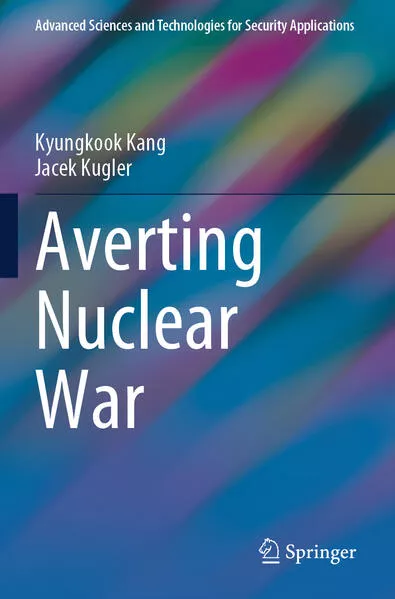
- Publikationen ca: 3
- Fragen & Antworten
Kyungkook Kang
Kyungkook Kang: Kyungkook Kang is Research Specialist of Decision Science at Loma Linda University. He also holds the position of Senior Fellow at the TransResearch Consortium, a nonpartisan think tank dedicated to the systematic analysis of transatlantic policy in the East and West. Kang's primary research focus lies in providing new strategic guidance to detect and deter security threats to U.S. vital interests. His current work aims to enhance the ability of policy leaders to assess the uncertain trajectories and potential turmoil associated with the emerging threats from global power transition. Prior to his affiliation with Loma Linda University, Kang served as Assistant Professor of Political Science at the University of Central Florida. Kang has also taught at various institutions, including Claremont Graduate University, the University of Southern California, and La Sierra University. He is an expert in positive political economy and the use of decision-theoretic and computational methods employed to study social phenomena. Kang actively shares his research findings with policymakers and research analysts, aiming to bridge the gap between academia and practical implementation. His research interests cover a diverse range of topics within international politics and economics, including the dynamics of inter- and intra-state conflicts, the political economy of macro-economic policy, the U.S. foreign policy in the Asia Pacific region, and the policy of character-based human capital enhancement. Kang's contributions to the field have been published in academic journals such as International Studies Quarterly, Conflict Management and Peace Science, and International Interactions. He has also authored chapters in various books, with one of his notable recent works featured in "The Rise of Regions: Conflict and Cooperation" (2020, Rowman & Littlefield).
Jacek Kugler: Jacek Kugler is the Elisabeth Helm Rosecrans Professor of World Politics at Claremont Graduate University. He is recognized for his instrumental role in co-founding the TransResearch Consortium. Prior to joining Claremont, he held faculty positions at Boston University and Vanderbilt University. He has also taught at numerous other institutions, including Harvard, Caltech, War College, UCLA, and various international universities. He served as the president of the International Studies Association and the Peace Science Society, and he was the past editor of International Interactions. Over the past forty years, Kugler has been extensively involved as a policy consultant for various organizations, including the Intelligence Community, the US Department of State, the US Department of Defense, and the World Bank. He has provided valuable insights and recommendations through over 200 real-time reports, advising policymakers on important issues. Since 1968, Kugler has been deeply engaged in studying the long-term stability of nuclear deterrence under the guidance of Dr. Bernard Brodie. His deterrence work challenges prevailing policy arguments by showing that nuclear deterrence under Mutual Assured Destruction is tenuous and unstable. Kugler has made scholarly contributions across a wide range of topics, including global power transitions, the economic consequences of war, and the political performance of nations. His research has received significant support from organizations such as the Ford Foundation, NSF, USAID, DARPA, and the US Peace Institute. His publications, which include renowned books like "The War Ledger" (1980, University of Chicago Press) and "Power Transitions: Strategies for the 21st Century" (2000, CQ Press), as well as numerous journal articles, have sparked extensive debates and discussions within the field of international relations. In recognition of his research contributions, he has been honored with numerous lifetime awards.
Averting Nuclear War
This timely book offers a comprehensive examination of the current state of nuclear stability postures worldwide, effectively highlighting their inherent limitations. Through their analysis, the authors illustrate how the seemingly contradictory perspectives of deterrence optimists, disarmament idealists, and warfighting pessimists can be reconfigured into a unified approach towards achieving regional and global peace.
Averting Nuclear War
This timely book offers a comprehensive examination of the current state of nuclear stability postures worldwide, effectively highlighting their inherent limitations. Through their analysis, the authors illustrate how the seemingly contradictory perspectives of deterrence optimists, disarmament idealists, and warfighting pessimists can be reconfigured into a unified approach towards achieving regional and global peace.
Averting Nuclear War
This timely book offers a comprehensive examination of the current state of nuclear stability postures worldwide, effectively highlighting their inherent limitations. Through their analysis, the authors illustrate how the seemingly contradictory perspectives of deterrence optimists, disarmament idealists, and warfighting pessimists can be reconfigured into a unified approach towards achieving regional and global peace.


